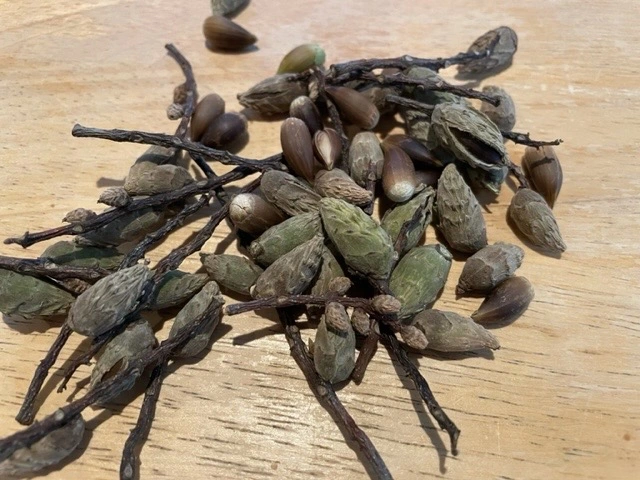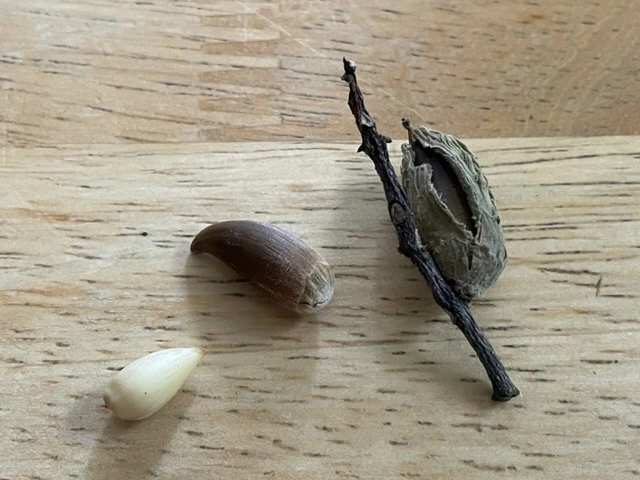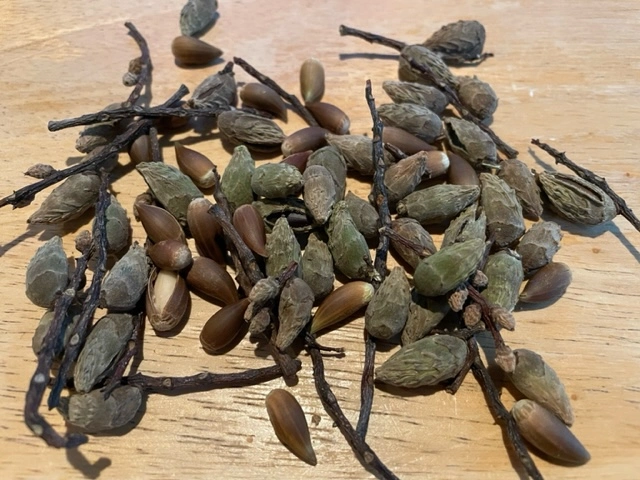This was an unusual tree I noticed in my neighborhood and it took me some time to identify. But when I did I was delighted to learn it is quite edible.
Processing the seeds was a bit of a chore and I only ended up with a small handful for my trouble but it was still a fun experiment.
They are sweet and starchy, like a small chestnut. Tasty and if they were bigger they would be quite worth the effort.
So, test your ID skills: can anyone figure out what tree these are from? Hint: it’s a food I doubt many English speakers have ever tried, though it should look a little familiar…



Answer if you give up
Castanopsis, generally known as chinkapin, though not the same as North American chinkapins. Read more on Wikipedia: https://en.m.wikipedia.org/wiki/Castanopsis
They look like pine nuts
Never seen this one either, quite curious now tho!
Good find!
Some kind of cocoa?
Hehe no. Doesn’t it remind you of a common temperate tree? It’s a relative of that one that everyone should know, but much tastier.
The answer is in the post if you click on the spoiler at the bottom.
The name got obliterated by the Lemmy slur filter for me.
Oh interesting I guess I don’t have that somehow? Hopefully the Wikipedia link gives you all the info you need.
Cocoa is the seed of a big fleshy fruit. They come in big clumps.
I had no chance of guessing as a person in Albion. I thought it might be a strange cousin of the acorn across the pond.
Well it’s actually from across the other bigger pond but yes they do look like tiny acorns. They are from the same family so that’s no coincidence. They’re sort of like little acorns with no tannins.




